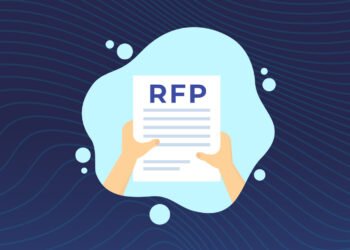Artificial Intelligence (AI) has emerged as a revolutionary force across various industries, and healthcare is no exception. The integration of AI connectivity software into medical systems is paving the way for more efficient, accurate, and personalized patient care. This technology is not just another industry buzzword; it’s rapidly becoming a fundamental component in the operations of hospitals and clinics worldwide. By streamlining processes and enhancing the quality of services, AI is set to redefine the healthcare landscape. Keep reading to discover how AI connectivity is transforming the industry and what the future may hold for healthcare providers and patients alike.
Understanding AI Connectivity Software in Healthcare
AI connectivity software, such as BA Insight, plays a vital role in unifying health data across systems like electronic health records, diagnostic tools, and patient feedback platforms. By streamlining this information, it helps healthcare providers make faster, more accurate decisions, detect anomalies, and deliver coordinated care without the delays common in siloed systems.
With the rise of virtual care and wearable health tech, AI connectivity ensures providers can monitor patients remotely and respond in real-time. This technology supports a shift toward proactive, data-driven healthcare, enhancing accuracy, reducing errors, and improving the overall patient experience.
Streamlining Clinical Workflows with AI Integration
AI in healthcare streamlines clinical workflows by automating routine tasks like appointment scheduling, insurance processing, and patient record management. This allows healthcare staff to focus on critical, patient-centered care. In laboratories, AI quickly and accurately interprets complex diagnostic tests, speeding up the diagnosis-to-treatment timeline.
In pharmacies, AI enhances medication safety by cross-referencing patient histories with current prescriptions to prevent adverse drug reactions. These applications reduce administrative burdens and boost operational efficiency. As AI connectivity advances, it continues to support healthcare professionals in delivering faster, safer, and more efficient care across various clinical environments.
Enhancing Patient Care Through Data-Driven Decisions
AI connectivity software empowers healthcare providers to convert large volumes of patient data into actionable insights, enabling personalized care tailored to individual needs. By analyzing both historical and real-time data, AI helps clinicians predict outcomes and identify effective treatment plans. Its predictive capabilities also support early disease detection by spotting subtle patterns that signal emerging conditions, allowing timely intervention.
Machine learning models continue to refine their accuracy, enhancing diagnostic reliability. Beyond clinical applications, AI aids in forecasting hospital admissions, helping healthcare facilities optimize staffing and resource management. These efficiencies contribute to higher care quality and better use of healthcare infrastructure as AI-driven strategies guide clinical and operational decisions.
Improving Healthcare Collaboration with Intelligent Systems
AI connectivity enhances collaboration in modern healthcare by streamlining data sharing and communication among professionals. It supports timely, secure updates on patient progress and enables seamless case discussions between specialists. These systems ensure continuity of care across shifts by maintaining accurate, up-to-date records accessible to all providers, reducing the risk of miscommunication.
AI also plays a vital role in collaborative research by analyzing extensive datasets from diverse sources, uncovering insights that smaller studies might miss. As healthcare networks expand and diversify, AI acts as a central platform, fostering teamwork and alignment across various services and specialties to support coordinated, efficient patient care.
The Future of Healthcare: Predictive Analytics and Machine Learning
The future of healthcare is being reshaped by predictive analytics and machine learning, enabling AI systems to forecast epidemics, assess individual health risks, and recommend personalized preventative strategies. In hospital operations, machine learning will streamline logistics, improve patient flow, cut down on waste, and enhance satisfaction by adapting to daily needs.
In treatment, AI-powered robotics is making precision surgeries more accurate and less invasive, reducing recovery times and minimizing human error. Machine learning also plays a crucial role in advancing personalized medicine by combining genomic data with clinical knowledge to develop tailored treatment plans, leading to more effective care that responds to the unique needs of each patient.
Overall, the integration of AI connectivity software into healthcare is transforming the field by fostering efficiency, personalization, and collaborative care. As AI continues to evolve, so too will its impact on healthcare systems, promising a future that is as innovative as it is patient-centered.















